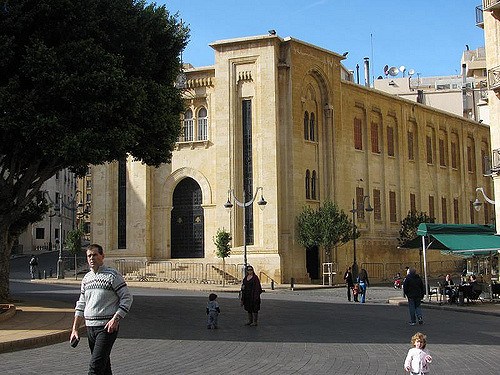Oil and gas drama in Lebanese Parliamentary workshop unearths three underlying issues in sector
News

On August 23, drama and havoc broke out in a workshop hosted by the Lebanese Parliament’s energy committee. Accusations of lack of coordination and transparency between Mohammad Qabani, head of the parliamentary energy committee, and members of the Lebanese Petroleum Administration (LPA) quickly deteriorated and led to the LPA’s withdrawal from the meeting.
While a detailed account of this event can be found here, the Lebanese Oil and Gas Initiative (LOGI) finds that these dynamics uncover three major issues in the sector and recommends the following:
1. Clear communication and transparency between government institutions are needed
The argument between Qabani and the LPA was caused by the lack of communication, transparent decision-making processes and access of information between Parliament, the Ministry of Energy and Water and the LPA. While in theory the decision-making process and division of responsibilities between the legislative, executive and regulatory branches are well-defined for the oil and gas sector (and can be found here), this show of discord exposes a fundamental breakdown in working relations among the institutions.
Clear division of roles and responsibilities and effective communication channels will be crucial in establishing a healthy oil and gas sector in Lebanon – across government institutions, and with the private sector, civil society and citizens. Flawless implementation will be vital to create a system of checks and balances and move away from one body having unmatched influence in shaping the sector.
2. Civil society has to be given an equal seat at the table
While civil society organizations were invited to participate in the event, the list of invitees remained limited and handpicked. A broader group of capable civil society organizations need to be involved to ensure balanced and complete representation.
Civil society was also not allocated equal airtime to raise its concerns compared to other participants. During the Q&A session civil society was allocated only three minutes for its intervention.
LOGI calls the organizers of these events, the LPA, and the Parliament’s energy committee to expand civil society representation allotting equal time to articulate their perspective.
3. Legitimate concerns about political deals and risks of corruption
Triggering the debacle was a question civil society has been asking in the two years since Executive Magazine published an exposé of a loophole found in the prequalifying licensing decree, and a request for clarification of July’s supposed political deal.
These are legitimate questions that civil society, including LOGI, is raising on a continuous basis. These issues need to be formally addressed by the government and political parties. The risks of corruption are high, and vague answers to these questions raise high suspicions.
In summary, the escalation of events at the conference was unfortunate. LOGI would like to facilitate a constructive and respectful debate with various stakeholders. Strong emotions and tensions are the least to expect when there is lack of coordination and cooperation in a vital national sector. This incident highlights the urgent need to improve the governance of the sector before it properly takes off.
The Lebanese Oil and Gas Initiative (LOGI), is an independent NGO that promotes the transparent and sound management of Lebanon’s oil and gas resources. LOGI is a member of the Publish What You Pay Network (PWYP). You can learn more at: www.logi-lebanon.org